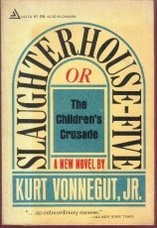Larry Heinemann wasn't my first writing teacher in college, nor my last, nor my most famous, and certainly not the kindest, though he wasn't nearly the meanest. But he is the best pure story-teller I've ever known, on the page as well as in person.
His first novel, Close Quarters, transports you to the war he fought in (Vietnam) like few others have. His second, Paco's Story, is as haunting a literary journey as you're ever likely to take. It won the Carl Sandburg Literary Award and the National Book Award in 1986. His third, um, "died a brutal death" (his bemused words) though I laughed out-loud every time I read it.
A fourth generation North Side Chicagoan, Larry's short stories and articles have appeared in Penthouse, Atlantic Monthly, Harper’s, Tri-Quarterly, and the Vietnam Writers Association Journal of Arts and Letters. He has conducted writing workshops at nearly a dozen universities, including Northwestern, University of Southern California and UC-Berkeley. He's teaching at Texas A&M now, undoubtedly imparting wise quietude and healthy uncertainty into the literary education of our future warriors. AHC
My old man was a bus driver. My mother was a farm girl from Michigan. My mother’s side of the family, oddly enough, is connected to Abraham Lincoln. I’m a sixth cousin. My grandfather resembled him. He had high sunken cheeks, a high squeaky voice which Lincoln apparently had, and those melancholy eyes staring off into space like you see in a lot of photographs.
Like a lot of other families of ordinary working stiffs who came up in the Depression and World War II, the expectation was you finish high school and get a job. I worked for a while after high school. Then I went to a two-year junior college across the street from Northwestern. I had a vague ambition to go to San Francisco State and get into theater. In 1966 I ran out of money, dropped out, and was drafted like that. Bingo. I was 22. I went overseas at 23 where everyone else was 18 and they called me the old man.
We all heard the stories of getting spit on, that mythology, when we were overseas. I can tell you that when I arrived home I was not in the mood. Some years ago I read from Paco’s Story at the University of Wisconsin and it was the only time I ever lost my temper at a reading. This guy, a history professor and the faculty pill, I was later told, said if he had met me at the airport he would have spit on me. I came out from behind the podium. I was shaking with anger and I said, “Shooting someone with a rifle and spitting on them comes from the same place in the heart. Second, I had just come from a place where I didn’t take any shit from anybody. You spit on me and you get your ass kicked within an inch of your fucking life.”
I laugh and say I became a writer because of the war, not in spite of it. My mother was a great storyteller and my grandfather was a wonderful bullshit artist. So I expect I got it from them.
So I go back to college in the spring of 1968. We’re sitting around that first night in writing class, talking about what we want to write about. I say I just got back from overseas and I want to write about that. And there was this kind of suck of breath that went through the room. There was this look on everybody’s face, like “You’re one of them?” My attitude was, Yeah. I am one of them and if anyone wants to talk about it we can step out onto the fire escape six stories up from Ohio street and talk about it out there.
There was a great deal of empathy. A serious understanding by me of what they were trying to do against the war and a serious understanding by them for who I was and what the war was really about. After the news of the My Lai massacre hit the streets, it was, Whoa. They asked, This happen a lot? And I said that the spirit of atrocity was in the very air. We were all working class kids. We were the first kids in our families to go to college. This was Columbia College in downtown Chicago. We found out we shared a great deal. They started out, “You should be against the war, Larry.” And I was telling them, “Let me tell you why you should really be against the war.”
If there was an antiwar attitude among the troops I was with it didn’t get any more sophisticated than, “Fuck this. This is bullshit.” When I came back from overseas I was just furious, and probably more radicalized than anyone I was in school with. I was extraordinarily bitter and for a long time I thought I was the only one. I had this remarkable energy. This “thing” that just blew through me has got to make sense, has got to mean something. I got into writing because I had this story that will not go away.
The thing that hooked me was the second week the teacher comes up to me—I didn’t know then that he’d been a medic in Korea—and says, “Larry, if you want to write war stories read these.” He hands me The Iliad and War and Peace. Everything that should be in a war story is in The Iliad. And War and Peace is just a great yarn and a beautiful piece of work. Plus we were reading Moby Dick and The Painted Bird. I don’t care if it’s phony, what a great fucking story. Turned out Kosinski was pretty strange. So I came into writing telling war stories. Never to my face did anyone say anything about being a soldier. The closest anyone came was to say how dare you tell those stories, how dare you use that language, and how dare you represent that point of view. That’s when I knew I was on to something. I mean, I wanted to take the war and just shove it up your ass.
I’ve run into people like that since, writers and writers who teach, and they act as if there is just one kind of story. They are doing the craft of writing, and teaching, an extraordinary disservice. How dare you tell any young writer that they may not write about something because of subject matter, or language or point of view just because you can’t deal with it? That’s your problem. Go find another line of work. The worst kind of teachers think stories happen from the neck up, that there’s a polite intellectual’s armchair distance. But if a story doesn’t make your skin crawl or make your bowels ache or your eyes fill with tears—well, what’s the point? Goody goody talk never gets anybody anywhere. The way I learned anything was always the hard way. I opposed the war because I was up to here in it. I learned what love really means when I had kids.
I always tried to talk about the war in terms of the work. It seemed like a good place to start. What struck me about Moby Dick was that Melville talked about what the work was so that you get an honest to God appreciation. There is a reason why the passing of that work is not mourned. Rowing after whales. You’re engaged in slaughterhouse work and you’re up to your eyeballs in blood. I started writing Close Quarters in 1968. I’ll hang the story on the work, the same as Melville. It struck me that folks back here not only did not know what it was like to be in an Army barracks, but also knew nothing about the war as work.
You get in a firefight and afterwards go out and do what we referred to as a dismount, just like the cavalry. Searching the bodies and making the count. You tie the heels together with commo wire, which is like extension cord, and drag them out to the road and leave them. There were some outfits that left playing cards but we never bothered with that. The strong inference was, “Fuck with us and this will happen to you.” Sometimes we had to drag the bodies a good long way. That’s what got to me about reading The Iliad. Achilles ties Hector’s corpse to a pair of horses. He gives them a whack on the ass and Hector’s body get dragged round and round the city until there was nothing left but what was tied at the ankles. How’s that for “fuck you?”
I worked on my second book for eight years and I came to appreciate was that everything contains its own irony. There is a shadow side, an irony, an opposite to everything. Some people say the story is overwritten because the description gets to be too much. But there’s a texture to the story, just like there’s a texture to everything. Look around. There’s always more than one thing going on. I don’t know about poignant. At bottom what I tried to say was, let’s be honest about this.
Cooler By The Lake took two and a half years to write. My daughter Sarah said it was the first time she heard laughing come from my studio. It was great fun to write. I tried to get even with just about everything that irritated me in Chicago. Stupid cops, dumb baseball teams. Rum-dumb politicians. The references to war? Well, you can’t get away from them. The stock market. Football. Politics. The evening news. Pick a topic and you get war jargon.
I’m going on a Fulbright to collect, transcribe, and translate Vietnamese folktales, about the cleanest expression of a people’s imagination and self-image as you can find. But my real work is a “family novel” I’ve had in the back of my mind for 10 years and more, and I want to write it in classic, Grimm Brothers, folktale style. In the last ten or fifteen years I’ve developed a serious interest in folklore and mythology. It seems all the elements of story have been there from the beginning. It’s about as pure a story form as you can possibly get.
I often laugh and say during the 1970s I hardly stepped off the porch. I hardly remember the music. I was, what would be the word, definitely inner-directed. I thought the one good thing I could do was write a good book. I’d been invited to antiwar rallies, and such. But the VVAW? It was run by officers, and I pretty much had it with them.
Looking at the world from down where the rubber meets the road has a long and honorable history. Sam Clemens never finished grammar school, and he did just fine. John Steinbeck wound up with the Nobel Prize. I do know that I had to start from square one and read the books I was already supposed to have read. Well, you get to read with a very clean eye. And it goes straight back to the energy of ambition that I brought to school and the fact that my teacher gave me a leg up and a good shove. A great gift. Probably the only disadvantage I feel is that I don’t have much of an organized background in American literature. I’m still working on Shakespeare, still working on Faulkner. I’m not a philosopher, and God knows I’m not a scholar. I’m a storyteller who got lucky.
I can’t think of doing any other work. If writing were taken away from me I would wither. Anybody can be a barstool bullshit artist. I take great pride in my craft. And let’s get this straight: there’s nothing cathartic about writing as a craft. Just because you write it down, put it in a box, and send it out of the house does not mean it’s gone. The people who write because they think it’s therapeutic are, well, I don’t know what they are, but they’re not writers. You have to let the chips fall where they’re going to fall. I do know this. I will always be able to reach back and touch the war and find a story. That’s a mellow irony of the richest kind. And the stories have less and less to do with the war, and more and more are, well, just stories.
skip to main |
skip to sidebar


"I myself feel that our country, for whose Constitution I fought in a just war, might as well have been invaded by Martians and body snatchers. Sometimes I wish it had been. What has happened, though, is that it has been taken over by means of the sleaziest, low-comedy, Keystone Cops-style coup d'etat imaginable. And those now in charge of the federal government are upper-crust C-students who know no history or geography."











"If Jesus came back and saw what was being done in His name, he'd never stop throwing up." Max von Sydow, Hannah and Her Sisters
An online literary journal dedicated to the magical, the imaginative, the ethereal, the supernatural, the coloratura, and the unknown...

In this issue...
Kurt Vonnegut, Jr. 1922-2007

"I myself feel that our country, for whose Constitution I fought in a just war, might as well have been invaded by Martians and body snatchers. Sometimes I wish it had been. What has happened, though, is that it has been taken over by means of the sleaziest, low-comedy, Keystone Cops-style coup d'etat imaginable. And those now in charge of the federal government are upper-crust C-students who know no history or geography."

Susan Botich...
is a member of Carson City's esteemed Ash Canyon Poets Society. Susan's prose has been seen in Margie Review, Illya’s Honey, Rattlesnake Review and The MeadoW. She lives in Minden. Danse Macabre welcomes her work to our pages.
Robert David Michael Cerello...
is an Objectivist philosopher, author and poet presently dividing time between San Diego and Budapest, Hungary. He professes to be a scientist of the arts, lecturer, singer, actor, and fictional creator of plays, poetry (haiku and sonnet-form in particular), verse, short stories, science-fiction, westerns and mysteries. His hobbies include rights-based constitutional law, astronomy without math, playing the piano, love of animals, baseball, track-and-field and sculpture. He writes voluminously on movies, economics, theater, psychology, ancient history, and enjoys creating new songs, perfecting new recipes, challenge to power, reading, walking and world travel, whether Abu Gonzalez likes it or not. He is developing an online database of his collected sonnets, which number in the thousands, and once again graces this journal with his philosophical theses and prose.
John Clare...
is the afternoon host of WITF / Harrisburg’s Classical Air. A well-tuned violinist, raconteur, founder of the Las Vegas Chamber Music Society, member of the American Music Center, and winner of the ASCAP Deems Taylor Award, Johannes has reached a new creative milestone: making his operatic debut in Pergolesi's La Serva Padrona. The excerpts of his interview with important film composer Danny Elfman which appear in this issue is but a small part of John's continuing conversation with composers across the 21st Century musical spectrum. He is happy to share his many thoughts & musical ideas with you at Classically Hip.
Christopher Perkins...
a new and ambivalent arrival to Las Vegas, holds a B.A. from the University of Utah and is working on his M.F.A. from the University of Nevada, Las Vegas. His work has appeared in Enormous Rooms and was also presented on the creative writers panel at this year's Far West American & Popular Culture Association conference. Danse Macabre welcomes this unambivalent supporter of the local poetry scene to our family.
Elizabeth I. Riseden...
lives and writes happily in Carson City, Nevada, with many wild things surrounding her and a panorama of the Sierra Nevadas to savor daily. One of the fine Ash Canyon poets, Liz has recently completed an eastern Nevada-centered memoir.
Dr. William N. Thompson...
is a professor in the Public Administration Department at the University of Nevada, Las Vegas. Since coming to Nevada in 1980, he has been actively studying public policy and gambling. He has authored, co-authored, and/or edited The Last Resort:Success and Failure in Campaigns for Casinos, Casino Customer Service=The WIN WIN Game, Gambling in America: An Encyclopedia, Legalized Gambling: A Reference Handbook, Native American Issues, plus numerous collaborations with the Wisconsin Public Research Institute and the Las Vegas Sun, where he authored a 45 article series on world casinos. Widely quoted in Time, Newsweek, Business Week, Fortune, Forbes, Wall Street Journal, The Economist, Finanacial Post, Governing, Macleans, Canadian Business, Christian Science Monitor, Washington Post, New York Times, The Globe and Mail, Vancouver Sun, and Los Angeles Times, Dr. Thompson has also appeared as a gambling authority on The Today Show, World News Tonight, Nightline, Crossfire, News Stand: Fortune Magazine, 48 Hours, Newshour with Jim Lehrer, Going Places, Frontline, Lifestyles of the Rich and Famous, CBC's Sunday Morning, NPR's Morning Edition & All Things Considered, and TVOntario's Studio2.
Sean Tribe...
is also an MFA student at UNLV who was on the creative writers panel at the Far West American & Popular Culture Association's 2007 conference. He recently had a monologue performed at the Fronterra Festival in Austin, Texas, and is currently at work on a collection of poems as well as a subsequent monologue.

The Poetry Mafia
Die welt musik (mit grosse wunderbar linken!)
Daily Arts News!
Pictorial Poetry
Have you taken your Pilvax?

Radio Free Poetry
Gnarly (as well as hip) Poetry Pages
An Ode to Peace
Literatura Polska
Zima Station, tovarisch

Les doigts bleus!
Whispers of the Muse - Imagination Unlimited!
Le site des editions Biliki
C'est magnifique Poetry Archive
LitWeb!
Un buen lugar literario en Español

A Good Literary Place
Milosz!
Geologic Poetry
Ennui as Poetry
The Poetry of Humour


NOTICE: Empowered by Presidential Executive Order, the National Security Agency may read this journal and/or all receiving pc units without warning, warrant, or notice. NSA may do this without judicial or legislative oversight. The President of the United States no longer (as of 11 July 2006) claims A) the right (hereforth known as Executive Privilege) to designate the sender or reader as an 'Enemy Combatant'; B) the right to detain and/or imprison him/her indefinitely without access to legal counsel, family, or friend; and C) the right to 'render' such persons to an undesignated foreign government for an undetermined period. USC revised code, 11 July 2006. Currently under Congressional review; expected date of repeal - 20 January 2009.

DANSE MACABRE
Apr / May 2007 Volume Two, Number Two by Adam Henry Carriere. Copyright (c.) 2007. All Rights Reserved.

As Per Counsel of the Legal Department...
DANSE MACABRE is edited, produced, and published online by Adam Henry Carriere - Copyright (c.) 2007. All rights reserved. Attributed works copyrighted by individual authors or in the public domain. Contributors retain all publication and serial rights. Viewpoints expressed by contributors, in quotations used, or suggested by displayed graphics may not necessarily reflect the opinions of this online journal. Images appearing in this journal are either in the public domain or the copyright of individuals who produced the image in question. It is believed that the non-profit use of scaled-down, low-resolution images taken from references throughout the world wide web which provide critical visual analysis to writings posted on this site qualifies as fair use under United States copyright law. Any other uses of these images may be copyright infringement.

Danse Macabre - Europe Issue
Danse Macabre - Holidaze Issue
Danse Macabre - Horror Issue
Danse Macabre - Music Issue
Jerry Falwell is Dead!

"If Jesus came back and saw what was being done in His name, he'd never stop throwing up." Max von Sydow, Hannah and Her Sisters